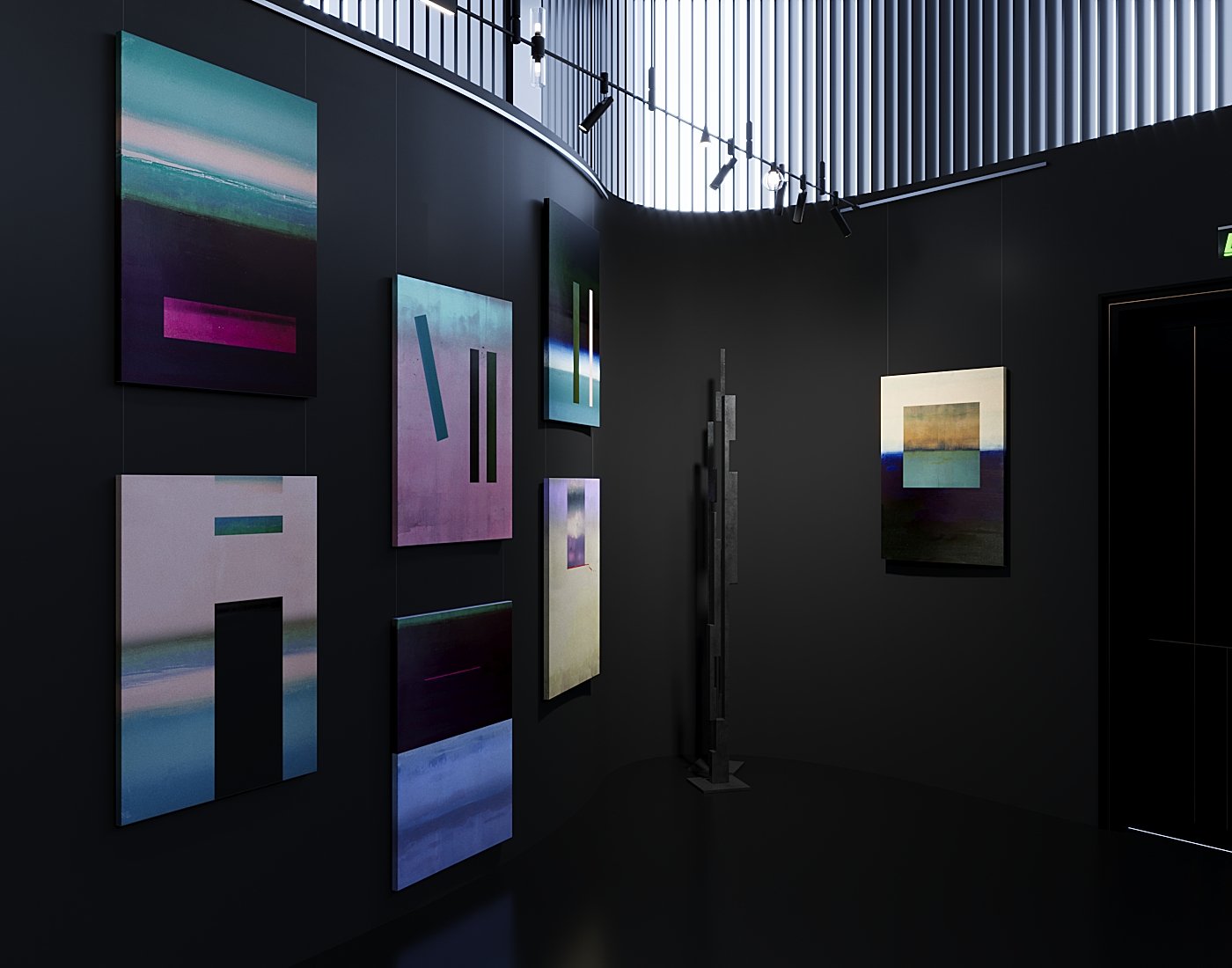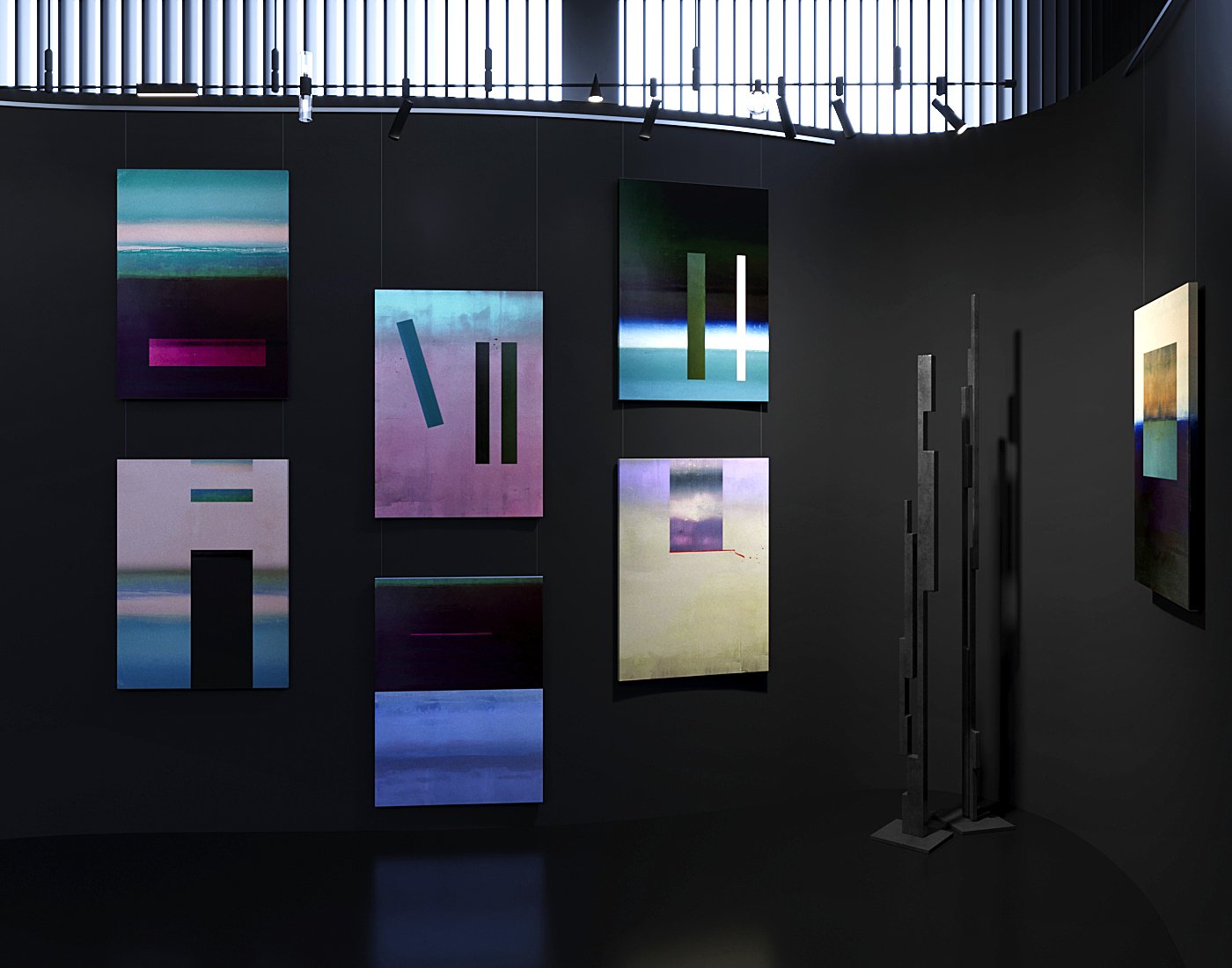Light Holds No Memory. Émile Duhamel
9 August – 13 September 2022
______________________________________________________________________________________________________________
Atticus Gallery presents Light Holds No Memory, a solo exhibition by Émile Duhamel, a rising French multidisciplinary artist whose work investigates the shifting terrain of memory, perception, and material trace. Born in 2000 in Lyon and currently based between Paris and London, Duhamel's practice engages deeply with the aesthetic and philosophical conditions of remembering in a time of accelerated visual saturation and cultural fragmentation.
Through an innovative process combining analogue photography printed on aluminium with subtle acrylic interventions, Duhamel constructs immersive works that sit between mediums. These hybrid pieces question photography’s claim to objectivity, transforming the static image into a dynamic site of interpretation. Memory, for Duhamel, is not fixed—it is continuously rewritten, reframed, and partially erased.
The exhibition’s title, Light Holds No Memory, encapsulates Duhamel’s central enquiry: that light, though it renders visibility possible, leaves no tangible residue. His works take this paradox as a generative premise, exploring the moment when images begin to dissolve. Smooth metallic surfaces become carriers of past moments made elusive, reworked through painterly gestures that conceal as much as they reveal.
Referencing the post-medium condition as defined by Rosalind Krauss, Duhamel’s practice blurs the lines between photography, painting, and sculpture. His works are not compositions, but constructions—images treated as objects to be manipulated, intervened upon, and disrupted. The interplay of permanence and ephemerality becomes a conceptual backbone, with the cold endurance of aluminium contrasted by the fragility and emotion implied in each stroke of paint.
Drawing on the phenomenology of Merleau-Ponty, Duhamel places emphasis on the experience of looking itself. His abstract landscapes dissolve horizon lines into ambient gradients, rendering the act of viewing contingent upon position, light, and time. The images are not stable. They shimmer, distort, and invite misrecognition. What the viewer sees is always subject to change, and this fluidity mirrors the instability of memory itself.
Duhamel’s visual language also dialogues with the photographic theories of Roland Barthes, particularly the notion of the photograph as a “that-has-been”—a trace of something irretrievable. By intervening on these traces, Duhamel introduces new layers of time and doubt. The past is no longer a certainty, but a suggestion, its meaning refracted through formal ambiguity and emotional restraint.
His muted palette—dominated by greys, cold blues, faded greens, and ochre—suggests a reflective, melancholic mood, further heightened by the minimal aesthetic. The spaces he constructs are liminal, neither fully natural nor overtly artificial, drawing attention to the often blurred boundary between constructed memory and lived experience.
Themes of displacement and belonging also underlie Duhamel’s work. Though not overtly autobiographical, his exploration of spatial ambiguity, disrupted perspective, and anonymous terrain speaks to the broader condition of cultural migration, dislocation, and the quest for rootedness in a rapidly shifting world.
The exhibition design at Atticus Gallery amplifies these concerns. Installed within a darkened, circular room, the works are subtly lit to accentuate their reflective surfaces. Vertical steel sculptures echo the geometric elements found in the images themselves, grounding the viewer in three-dimensional space while referencing the architecture of memory. The result is a meditative, sensory experience where the viewer’s own presence becomes implicated in the act of perception.
Light Holds No Memory presents Émile Duhamel as a significant new voice in contemporary European art—one whose works eschew spectacle in favour of intimate, philosophical encounters. His practice asks not what images reveal, but what they can never fully contain.
Visitor Information
Opening Hours: Monday – Saturday | 10:00 – 18:00
Location: Atticus Gallery, 11a Queen Street, Bath
Admission: Free


Émile Duhamel.
Q&A
Q:
Do you need a particular state of mind or a trigger to create a new piece or series?
A by ÉD:
Not a state, but a ritual. Cleaning brushes, laying out tools, a cup of coffee. This sequence of actions launches the process.
Q:
Do you think your childhood influenced you as an author?
A by ÉD:
A craft-oriented environment in the family. Respect for material, for the "made-ness" of a thing – that is primary.
Q:
Was there a moment in your life when you first felt like an artist?
A by ÉD:
Recognition not from an art critic, but from a scientist who saw a meaning in my work relevant to their field.
Q:
What is art?
A by ÉD:
A way of thinking where the medium is not words, but image, material, space.

